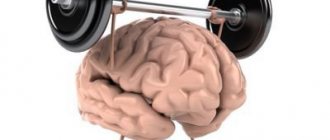There is no need to say much about the benefits of a good night's rest, which is an important component of the life of any individual. A person tired during the day dreams of getting home as quickly as possible and, having said hello to his soft pillow, finds himself in the kingdom of Morpheus.
Sleep is our adaptation to the real world. Thanks to sleep, our internal resources and the strength spent during the day are restored, and mental, physical and emotional performance is maintained at the proper level. A person who has no problems with sleep at night feels rested in the morning and is completely ready to conquer new heights.
Sleep consists of several phases and stages of electrical activity in our brain, which clearly and consistently replace each other. Surprisingly, only developed warm-blooded animals (mammals, birds) are able to sleep the way people do.
Deep sleep, which is one of the stages of slow-wave sleep, is responsible for the recovery processes occurring in the body during a night's rest. What is deep sleep? What changes occur in the human body during deep sleep? How long should deep sleep last and can it be increased? Today we will discuss these and other important issues regarding deep sleep and its effect on our body.
Deep sleep: what is it?
Deep sleep (“slow wave sleep”, “delta sleep”, “orthodox sleep”) is a stage of slow sleep, during which certain recovery processes occur in the body. Each person has his own individual version of deep sleep, which is formed on the basis of the following data: general health, level of mental and physical fatigue, weight, age, gender, presence/absence of bad habits, etc.
During deep sleep, brain activity slows down significantly and the level of muscle activity decreases. A sleeping person does not react to odors and other external stimuli. Recently, scientists were able to prove that during deep sleep our brain does not turn off completely, as previously stated, but is engaged in processing information that it received throughout the day.
How can you determine that a sleeping person is in deep sleep? This can be done using an electroencephalogram and delta waves, which will be released on it during deep sleep. Delta waves, which arise due to the special activity of our brain, are somewhat reminiscent of the slow and calm waves of the ocean that immerse a sleeping person in a magical world of dreams.
Performance and sleep
During wakefulness, the brain uses up its energy reserve. During rest, while the excitability of neurons is reduced, it is restored. If you don’t let a person get enough sleep, this won’t happen, and in the morning he will be no less (and sometimes more) tired than in the evening.
As a result, performance, especially mental performance, and overall quality of life suffer. This manifests itself in:
- feeling tired;
- deterioration of coordination;
- attention disorders;
- memory loss;
- difficulties in mastering skills.
A sleep-deprived employee is significantly less productive than a fully rested employee. During the day, he may switch off briefly, although this sleep is unlikely to be deep. This is fraught not only with errors in work, but also with the risk of injury at work.
How does deep sleep affect how you feel after waking up?
The more the sleeper is in a state of deep sleep during the night's rest, the better and healthier he feels after waking up. A person who does not experience any problems with the duration of this phase of sleep, the level of physical endurance and mental activity increases noticeably. Such an individual feels full of strength and energy throughout the day, he quickly and efficiently solves the tasks assigned to him, and does not experience any difficulties with orientation in time and space.
A lack of deep sleep negatively affects immunity, nervous system function, concentration, coordination and appearance. An individual who did not fully rest at night looks tired and broken in the morning, has a rumpled appearance, gets tired quickly, and cannot concentrate his attention on the tasks assigned to him. For such a person, the risk of catching an infectious or cold disease increases several times!
Many people who have problems with deep sleep develop apnea syndrome (during sleep, breathing stops for several tens of seconds). If a person regularly experiences a lack of deep sleep, then he experiences serious disruptions in the functioning of the endocrine system. The body stops producing growth hormone. This can cause the development of obesity in people who have problems with excess weight.
Deep sleep is also characterized by manifestations of sleepwalking, nightmares and other mental disorders. In such cases, waking up a person during deep sleep is strictly prohibited, otherwise it will negatively affect his well-being and will only worsen his mental disorder.
The best remedies for insomnia
Medicines
Melaxen
A synthetic analogue of the hormone melatonin, responsible for sleep. The drug quickly normalizes and correctly regulates biorhythms. Increases the depth and quality of sleep, eliminates periodic night awakenings. After a night with Melaxen, the feeling of weakness disappears, lethargy and fatigue disappear, dreams become bright and rich. Also suitable as an adaptogen when changing time zones. Reduces negative reactions to stress. Does not cause dependence or addiction.
Recommended course as a sleeping pill: 1 tablet 1 time per day before bedtime. As an adaptogen: the day before the expected departure and for 2-3 days after changing the time zone before bed.
Mälarena
The drug is an analogue of Melaxen. Also indicated for circadian rhythm disorders: flights with changes in time zones, violation of the daily routine, including shift work schedule. Helps eliminate weather dependence syndrome, fatigue, insomnia in older people, and reduces depressive syndrome.
Recommended course: For insomnia and sleep disorders, 1 tablet once a day, 30 minutes before bedtime. The duration of taking the drug is from 1.5 to 2 months. When changing time zones the day before departure and for 2-5 days after, 1 tablet 1 time per day before bed.
Melarithm
The effect on the body is similar to previous drugs. Normalizes circadian rhythms; Makes sleep deep and of high quality, eliminates night awakenings and promotes rapid fall asleep. But in addition to regulating sleep, melarhythm helps improve well-being, mood, and eliminates lethargy and morning drowsiness. It has a pronounced immunostimulating and antioxidant effect.
Recommended course: 1.5–3 mg 30 minutes before bedtime, 1 time per day. Duration of admission is no more than 7 days.
Herbal preparations
Nervochel
A homeopathic medicine designed to reduce increased nervous excitability and normalize sleep. Used for neuroses and menopause in women. Eliminates symptoms of depression and blues, VSD.
Recommended course: 2-3 weeks,
dissolve 1 tablet under the tongue 3 times a day 30 minutes before meals or 1 hour after meals.
Motherwort forte Evalar
Motherwort has a pronounced calming effect, strengthens the nerves, and puts the cardiovascular system in order. The advantage of the drug is that it additionally contains magnesium, and as is known, this microelement plays a key role in the functioning of the nervous system and eliminates muscle excitability. In combination with vitamin B6, which is the main link in the functioning of the nervous system, magnesium is better absorbed by the body. The drug performs a complex effect - it normalizes the emotional state, relieving anxiety and aggression, and at the same time improves sleep.
Recommended course: 3-4 times a day, 1 tablet for 3-6 weeks.
Novo-passit
Completely herbal preparation. Recommended for neurasthenia, increased anxiety, emotional instability, aggressiveness and irritation. Helps overcome fears, eliminate distraction and fatigue. Helps cope with headaches and mild forms of insomnia and periodic sleep disorders associated with psychological tension and stress. The advantage is that it is acceptable for children over 12 years of age.
Recommended course: 5 ml 3 times a day before meals with the prospect of increasing the dose to 10 ml per dose. If severe fatigue or depression occurs, it is necessary to reduce the morning and daily dose by 2 times and take 2.5 ml in the morning and afternoon and 5 ml in the evening. The interval between doses of the medicine should be 4-6 hours.
Knightwell
An excellent and effective drug, with many positive reviews. The herbal composition is enhanced with Magnesium and vitamin B6. Includes mechanisms that are responsible for maintaining normal sleep and deep sleep. Waking up in the morning becomes comfortable, light, without feeling groggy and tired. In addition, Nightwell promotes better concentration, memory and performance, because Magnesium in combination with vitamin B6 has a beneficial effect on the nervous system.
Recommended course: just 1 capsule before bedtime. Duration of treatment is 3 weeks.
Duration of deep sleep
The duration of deep sleep varies for each person, because it directly depends on the individual characteristics of the body. For one individual, 4-5 hours of sleep is enough to fully rest and wake up refreshed, while for another, 8-9 hours is not enough so as not to feel exhausted and squeezed like a lemon in the morning.
Deep sleep lasts longer for a person who has just fallen asleep than for a person who needs to wake up soon. In the first cycle, slow-wave sleep takes about 80-100 minutes, in subsequent cycles its duration decreases.
Scientists say that deep sleep in an average adult should occupy from 30% to 70% of the entire night's rest. Each person has their own biological rhythms, so it is impossible to name the exact time for a specific person.
Thanks to experimental work, scientists were able to determine average time indicators.
- People under 30 years old need 120 minutes of deep sleep for proper rest.
- people from 35 to 60 years old – 80-85 minutes,
- people over 60 years old – 75-80 minutes.
Why sleep patterns are disrupted
Disruption of sleep patterns has a bad effect on work.
The cause of a disruption in biological rhythms can be stress, irregular working hours, or the need to care for a child or a sick relative. Often the routine gets disrupted due to travel or long-distance business trips, when you have to adapt to different time zones.
The reason for changes in sleep patterns in teenagers is often the video games they play at night in secret from their parents. Although many adults also stay late on forums and social networks to the detriment of sleep.
What happens to the body during deep sleep?
During deep sleep, energy accumulates in the human body and new cellular structures are formed. These processes, which are restorative in nature, take place in the body only when it is at rest. If a person has certain problems with this stage of sleep, then his body does not fully recover, which negatively affects the well-being of such an individual.
During delta sleep, consciousness completely switches off, breathing becomes arrhythmic, shallow and rare, heart rate quickens, and the galvanic skin response noticeably increases.
If you wake up a person during deep sleep, he will not remember anything and will say that he did not see any dreams, did not feel anything, and did not have and do not have any thoughts in his head.
Main stages of sleep
There are two stages of sleep: non-rapid eye movement (NREM) sleep and rapid eye movement (REM) sleep. In addition, when you rest at night, you experience different stages of the sleep cycle. When the brain first enters sleep, the mind goes through three stages of NREM sleep and then one stage of REM sleep.
Once this cycle ends, the process repeats until you wake up. This is what happens to you when you fall asleep.
First stage
The sleep cycle begins with the first stage, when the body just begins to relax. People often experience slow, rolling eye movements, sudden jerking or muscle spasms, or a falling sensation. At this stage you can easily wake up.
Second phase
At this stage, your slow eye movements will stop, your heart rate will slow down, and your body temperature will begin to drop. Your muscles will also begin to contract and relax as you fall deeper into sleep.
Third stage
The third stage is the moment when deep sleep occurs. During this stage, the brain waves slow down and become delta waves, making it much more difficult to wake up.
This stage is so important because, as we mentioned at the beginning, it is the recovery stage of sleep. It is during this time that the body renews tissue, strengthens its immune system, and builds bones and muscles.
Fourth stage
The last stage of sleep is REM sleep, the deepest stage of sleep. During this time, the brain becomes more active, helping you form memories and have vivid dreams. During this stage, your breathing, heart rate and eye movements speed up, and your blood pressure rises.
How to increase the duration of deep sleep?
There are many ways to increase the duration of this stage of sleep. Let's look at the most effective of them.
Method No. 1. Reconsider your lifestyle
A sedentary and sedentary lifestyle negatively affects the quality of sleep. To make deep sleep last longer, start taking care of yourself: give up alcoholic drinks, cigarettes, fatty, spicy, sweet and high-calorie foods, exercise regularly, spend more time in the fresh air, ventilate the bedroom before bed.
Very often, sources of noise and other distractions prevent us from fully resting. If you live in a noisy place and you have no way to influence the noise level, then buy earplugs.
Method No. 2. Get rid of bright light sources
Bright light sources negatively affect the quality of sleep. TVs, computers, smartphones, tablets and other gadgets have become a part of our lives. But if you want to increase the duration of delta sleep so that you feel alert and rested in the morning, then at least 1.5-2 hours before going to bed, get rid of these sources of bright light.
Are you used to falling asleep with your phone or tablet in your hands? Can't sleep without TV? Give up these bad habits, otherwise your body will not be able to fully prepare for a night's rest.
Method number 3. Go to bed at the same time every night
Experts recommend that people who want to increase the duration of deep sleep should fall asleep at the same time. Train yourself to go to bed at the same time on weekdays and weekends.
Once you get used to the regime, you will be surprised to notice that your sleep problems have disappeared without a trace! People who have learned to go to the kingdom of Morpheus at the same time note that now in the morning they feel much better and more energetic than when they did not have such a habit.
Method number 4. Avoid late dinners and workouts
Life in the modern world dictates its own conditions and not always throughout the day we have the opportunity to eat normally or go to the gym. But it has long been proven that late dinners and going to the gym after work negatively affect the duration of deep sleep.
In order for your body to fully rest and recover at night, you should not actively exercise before bed or overeat at night. Therefore, avoid training and high-calorie foods 2-3 hours before going to bed.
Method No. 5. Introduce magnesium-containing foods into your diet
Magnesium not only normalizes the functioning of the nervous system and helps the body produce energy, but also has a positive effect on the duration and quality of deep sleep. Therefore, be sure to include plant foods in your diet that contain this beneficial microelement.
Nutritionists advise eating wheat bran, beans, walnuts, spinach, pumpkin seeds, almonds, peanuts, dried dates, sesame seeds, because these foods contain large quantities of magnesium.
Method number 6. Do not be nervous
The funny saying that all diseases arise from nerves, and some from love, is not as far from the truth as we would like it to be. The more nervous and worried we are, the more negatively this affects not only our general health, but also the quality of deep sleep.
How can you reduce the amount of stress if you have to live not in a good fairy tale, but in a reality that is far from perfect? This can be done through meditation. Meditation practices help not only calm the mind and organize the senses, but also increase the duration of deep sleep.
Causes of insomnia
Psycho-social stress. For example, this happens due to excessive anxiety about money and work, illness of children and loved ones. When crises happen in your personal life and you conduct an internal dialogue, bringing to perfection what you haven’t done in reality.
Depression
of a different nature, a state of blues and anxiety;
Increased brain activity
and emotional overarousal, both positive and negative. This often happens during sessions, before and after important business meetings, before trips and vacations, during periods of intense activity and multitasking. elderly age;
Discomfort
both mental and physical, the influence of extraneous sounds, light, noise. Darkness is one of the main conditions under which the sleep hormone melatonin is produced in sufficient quantities. The slightest lighting, watching TV or a phone monitor before bed can affect the quality of melatonin production and disrupt sleep. Often the cause of poor sleep can be discomfort caused by bedding - an uncomfortable pillow, too hard, too soft, uneven mattress. In this case, solving the problem becomes less problematic;
Non-compliance with the regime
day and biorhythms. For example, a shift work schedule, frequent time zone changes. This often happens with simple night owls, the so-called “night owls,” whose peak activity occurs in the afternoon and evening. It is difficult for them to go to bed on time, it is difficult for them to fall asleep and wake up at the appointed early hour, because a lot of time, energy and effort have been spent trying to sleep;
Alcohol
and caffeinated drinks. They also cause sleep disturbances. Especially if drinking such drinks happened in the evening. Needless to say how harmful they are for healthy sleep. Alcohol is wrongly considered by some to be a sedative and hypnotic. While it may actually make it easier to fall asleep, the quality of your sleep will suffer significantly. And all because alcohol inhibits the REM sleep phase. The same one during which the body’s strength is restored, when we dream and our brain organizes the information received. In addition, alcohol and caffeine can put a strain on the cardiovascular system, provoke snoring and sleep apnea, which act like a time bomb on the body, provoking both mental and functional disorders;
Apnea
- breathing disorders that can occur under the influence of substances, or due to the structural features of the nasopharynx, when obstacles appear in the air path in the form of a sticky palate and uvula, a deviated nasal septum, adenoids, cysts, allergies or a runny nose.
Taking medications (sympathomimetics, anorectics), drugs. Carefully read the instructions for any medications you take. One of the side effects may be increased excitability. It is for this reason that drugs such as echinacea, ginseng and many other adaptogens are not recommended to be taken in the afternoon, but rather from morning until lunch. Diseases and disorders.
Infectious and colds, fever, itchy skin and pain of various locations and origins;
Endocrine diseases
accompanied by hypoglycemia, frequent urination, dry mouth. Do you drink a glass of water before bed? Do you wake up to drink or from feeling hungry? It's time to change something;
Neurological diseases
such as dementia, Parkinson's disease, traumatic brain injury, neuroses or schizophrenia.
Diagnosis of sleep disorders
The most common way to study sleep disorders is polysomnography. This examination is carried out by a somnologist in a specialized laboratory where the patient spends the night. While the patient is sleeping, various sensors simultaneously record the bioelectrical activity of the brain (EEG), cardiac activity (ECG), respiratory actions of the anterior abdominal wall and chest, air flow that is inhaled and exhaled, oxygen saturation of the blood, etc. Everything that happens in the ward is filmed and a doctor is on duty. Thanks to this examination, it is possible to examine the state of brain activity and the functioning of the main body systems during each five stages of sleep, identify deviations and find the cause of disturbed sleep. Another way to diagnose sleep disorders is to study average sleep latency (ASL). It is used in identifying the causes of drowsiness and plays an important role in the diagnosis of narcolepsy. The study includes five attempts to fall asleep, which are carried out while awake. Each attempt is given 20 minutes, the interval between these attempts is two hours. Average sleep latency is the time it takes for a patient to fall asleep. When it is more than 10 minutes, this is normal, from 10 to 5 minutes is a borderline indicator, less than 5 minutes already indicates pathological drowsiness.











